CIA Sponsored Terror, Civil Liberties, Criminalizing Dissent, Guantanamo, Habeas Corpus, Human Rights, Political Prisoner, Supreme Court, Surveillance, Targeting Muslims, Torture, Truth to Power, War Resister
Podcast: Play in new window | Download
Updates:
——


U.S. Agency Infiltrates Cuba With Fake Twitter Account
Consistent with the NSA’s deceptive strategies in creating fake social networks, the U.S. Agency for International Development masterminded the creation of a “Cuban Twitter: The communications network was designed to undermine the communist government in Cuba. It was financed through foreign banks and constructed through shell companies. The Associated Press learned that the project lasted more than 2 years and had tens of thousands of followers. The content initially was non political such as soccer, music and weather, but it was learned that once a critical mass was reached, political content would be introduced to organize “smart mobs” that could trigger a Cuban Spring.
Jane Franklin:
- When Obama speaks about Cuba you have to read between the lines always and be very careful about what you think he’s saying.
- He said the notion that “the policies we put into place in 1961 would somehow be as effective as they are today in the age of the internet and google and world travel doesn’t make sense.
- We recognize that the aims are always going to be the same and what we have to do is continually find new mechanisms and new tools to speak out on behalf of the issues that we care so deeply about.”
- That’s what he was considering back in November and of course before that this plan to use creative and thoughtful methods to infiltrate Cuba and try to create what the Associated Press calls “smart mobs” which could lead to the downfall of the Cuban government.
- It was called ZunZuneo and was budding in 2009, then it was launched full scale in 2010 with a campaign to use a half a million cell phone numbers that U.S. aids have gotten and sent what they call blasts to those half a million receivers.
- Those people would be told that they could sign up for this program and get news and so on. News that at first would be trivial, and then gradually according to the documents that the AP has – this would increase until they could develop smart mobs – that is street protest that would help lead to the overthrow of the Cuban government.
- They used foreign countries to disguise where the messages came from. They set up a bank account in the Cayman Islands which is a tax haven to use that for money.
- When there was a concert in Havana in 2009 which is described in the report by the AP and the US Aid people blasted the cell phones with questions.
- One of the questions was do you think the two bands that were not in favor of the Cuban government should be on the stage with the band that’s there today?
- If you answered yes, you were what’s called “receptive” to their ideas.
- A few months later they launched this full scale campaign and eventually they had 60 thousand receivers using their program. That’s not many in the population of Cuba. It was a failure and they closed it down.
- They were paying tens of thousands to Cuba Cell, which regulates the cell phones.
- They get millions of dollars from Congress every year to create such programs and try to overthrow the government of Cuba which they’re supposed to do according to U.S. law The Helms-Burton Act requires that.
- It (the report) says that a researcher from Mobile Accord which was the main private contractor was building a mass database about the Cuban subscribers including gender, age, receptiveness and political tendency.
Guest – Jane Franklin is a historian, she has written two books about Cuba: Cuban Foreign Relations 1959-1982 (Center for Cuban Studies, New York, 1984) and Cuba and the United States: A Chronological History (Ocean Press, Melbourne, Australia, 1997). She is co-author of Vietnam and America: A Documented History (Grove Press: New York, 1985, enlarged edition 1995). Her chronology of the history of Panama is in The U.S. Invasion of Panama (South End Press: Boston, 1991). She has published numerous articles, poems and film reviews and has lectured extensively about Cuba, Vietnam, Nicaragua, El Salvador, and Panama. She is a frequent radio commentator about Cuba.
—–
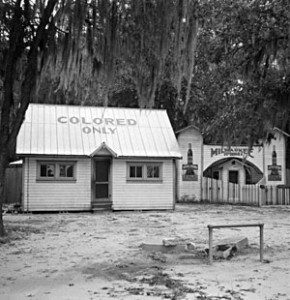
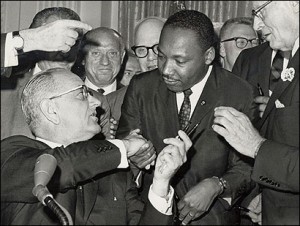
50th anniversary of the Civil Rights Act
This year marks the 50th anniversary of the Civil Rights Act, the most sweeping civil rights legislation since Reconstruction. The Civil Rights Act prohibits prohibits discrimination of all kinds based on race, color, religion, or national origin. The law also provides the federal government with the powers to enforce desegregation. In a speech on June 11, 1963, President John F. Kennedy unveiled plans to pursue a comprehensive civil rights bill in Congress, stating, ‘‘this nation, for all its hopes and all its boasts, will not be fully free until all its citizens are free.”
Professor of Law John Brittain:
- Yes, I do believe Lyndon Johnson deserves credit, although he had such allies like Martin Luther King. They released some of the unacknowledged tapes by President Johnson in his office in talking with Dr. King both about the 1964 Civil Rights Act as well as he went on to usher in the 1965 Voting Rights Act.
- These acts were a response to a condition on the ground, and the condition was apartheid in the United States, in particularly in the South, but as Malcolm X said anything below the Canadian – US border was the South.
- We’re also celebrating the 50th anniversary of the Summer in Mississippi.
- The demonstrations in the streets no doubt had an effect upon the Congress in passing the 1964 Civil Rights Act to shall we say, let some of the steam out of the kettle.
- He (LBJ) came out of the Lone Star state, the only state that came into the union as a slave state and the state that promoted the white primary, that unless you were white you couldn’t vote in the primary.
- The Missouri Compromise we’d have slave states and free states. After the civil war we’d have a great period of radical Republican reconstruction in the South to give the black former slave equal rights but that died by the 1890s and ushered in a period what we call Jim Crow.
- Coming up to that point in the 1960s and with the riots, to his credit LBJ, notwithstanding that dark cloud over his head, that war in Vietnam which Dr. King called immoral, unjust and illegal and took a lot of criticism for daring to talk about international affairs and indeed talk about a war.
- The minute lawyers went to work in representing the poor, they were cut off by restrictions. The war on poverty and neighborhood legal services was started in 1965-66 but a decade later it was cut off at the knees.
- Johnson said when he was first presented with the idea of legal services – hell I’m not going to pay lawyers to sue the government and win but he was convinced otherwise.
- By the time 65 came around and they created this compromise and started this new federal agency funding called Legal Services corporation to take the political veto out of governors but they had to agree to restriction.
- Legal Services lawyers couldn’t take criminal cases, abortion cases, agitation for labor rights cases, immigration cases, school desegregation cases.
- Just last year 2013, on the eve of celebrating the 50th anniversary of the Voting Rights Act, Chief Justice John Roberts and the right wing on the Supreme Court – Shelby County v Eric Holder
- The Civil Rights Act of 1964 was the same Civil Rights Act of the 1860s. The only difference is they based on a different constitutional provision, not the 14th Amendment which gives Congress the right to enforce the Constitution to provide equality for the former slave, now African American, but instead in 1964, they based it on commerce clause by saying that any segregation interfered with interstate commerce. The act in essence provided for equal accommodation.
- It broke the back of Jim Crow segregation where an African American could go shop, go eat, go live and go play and go to any access in parts of America.
- It would later take the 1968 Fair Housing Act in order to provide equal housing.
- The 1964 Civil Rights Act gave Congress, gave the Justice Department, the Department of Education too, and others the tools to go in and to stop Jim Crow or “colored only” segregation in our mainly southern states.
- That was the same Justice Department that went on to enforce 1964 Civil Rights Act by bringing legal claims against hotels and restaurants, government facilities that continued to bar blacks from equal access.
- Kennedy said where are the lawyers? By current tort terms, he falsely imprisoned them in the White House and told them they couldn’t leave until they created an organization and out of that grew the Lawyers Committee and immediately they went down to Jackson, Mississippi and created the Jackson Litigation Office.
- I happen to come along in 1969 fresh out of law school to become one of the lawyers in the Jackson litigation and throughout the history of the lawyers committee. The only national legal organization dedicated to equality for African Americans and other people of color have gone on to litigate in education, in voting, in housing and employment discrimination as well as criminal justice.
Guest – Professor John Brittain, tenured professor of law at the University of the District of Columbia, David A. Clarke School of Law. In the past he served as dean of the Thurgood Marshall School of Law at Texas Southern University in Houston, was a veteran law professor at the University of Connecticut School of Law for twenty-two years and was the Chief Counsel and Senior Deputy Director of the Lawyers’ Committee for Civil Rights Under Law in Washington, DC, a public interest legal organization started by President John F. Kennedy to enlist private lawyers to take pro bono cases in civil rights.
———————————————————————-
Please Help Support Law and Disorder

Law and Disorder is now a sponsored project of Fractured Atlas, a non-profit arts service organization. Contributions for the charitable purposes of Law and Disorder must be made payable to Fractured Atlas only and are tax-deductible to the extent permitted by law.
CIA Sponsored Terror, Civil Liberties, Criminalizing Dissent, Cuba, Habeas Corpus, Human Rights, NSA Spying, Political Prisoner, Supreme Court, Surveillance, Targeting Muslims, Torture, Truth to Power
Podcast: Play in new window | Download
Updates:
- President Barack Obama Lies About NSA Bulk Collection and Retention of Personal Metadata.
- Der Spiegel Reports on U.S. Spies On Huawei Telecommunications in China
- New York Times Reports That U.S. Spying on China Is In Retaliation From China Spying
- Michael Ratner: New York Times Spin Is Ridiculous In Justifying Spying
—-


Obama’s Ukrainian Power Grab, Sanctions and the Boomerang Effect
The unfolding of the US-EU-Russian conflict over the Ukraine will have far reaching consequences and will ultimately define the global configuration of power. While the Western power grab was largely ignored, the US-EU propaganda machine kicked into gear, focusing on Russia’s defensive action in the autonomous region of Crimea. The citizens of Crimea organized a self-defense militia and pressured the Putin administration to help protect them from armed incursions by the NATO backed coup regime in Kiev. We’re joined today by returning guest Professor James Petras who has written several articles on the crisis in the Ukraine. He identifies it as the most recent cycle of US empire-building in a 3 phase system including Eastern Europe, Latin America, Africa and Asia.
Professor James Petras:
- The U.S. according to UN Sub-secretary of Foreign Affairs stated it very clearly. We’ve poured 5 billion dollars into the Ukraine building up organizations and politicians who are favorable to NATO and the European Union and hostile to Russia and eager to oust it from the bases in the Black Sea.
- I think it was a long term project in building client organizations there, mainly in terms of electoral politics in the beginning.
- So you have a target of a vassal state building and encircling Russia in line with what happened through the Baltics through central Europe and into the soft underbelly of Russia.
- At the same time this is going on Russia is cooperating with the U.S. in many spheres including the over-flight caper in Libya, supporting the sanctions in Iran,
- You have on one hand Washington aggressively encircling Russia, Russia essentially cooperating with the U.S. to gain good merit points, hopefully to get accepted in the G8.
- Two thirds of the so called Ukraine Army decide to stay in Crimea as an annex state of Russia. This is a fact that tells you something about the hostility they feel to the people that grabbed power in Kiev.
- The Russian threat that’s been manufactured has to do with the fact that in southern Ukraine there have been massive demonstrations against the coup makers.
- What they’re doing is reenforcing repressive authority against the internal opposition which is hostile to the coup.
- The internal opposition now doesn’t want to join Crimea but do want a federal structure in which they elect their own governors and legislators and not be forced to accept oligarchs in line with the EU policies.
- I think its clear its to encircle Russia and return Russia to the status of the 1990s.
- With the rise of Putin you have a semblance of a state once more. You have a political economic order which is functioning which has raised living standards which allows Russia to play a modicum of political role in world politics in particular the border area.
- Venezuela: Democratic protesters don’t burn down 500 businesses and installations administering social welfare programs.
- Democratic protesters don’t assassinate 7 national guard and policemen trying to maintain order.
- Democratic protesters don’t blow up electrical grids and light up the national forests in a 360 degree circumference.
- Kerry is lying, the U.S. is supporting violent terrorists. Those people that are engaged in this activity are engaged in trying to overthrow the government by force and violence. They resorted to this because they lost the last 10 elections in Venezuela including a resounding defeat this last December.
- They’re going for a civilian based terrorist operation which they (U.S.) will hope will precipitate a military coup.
- The New York Times is a propaganda organ for the U.S. government whenever there is a serious conflict particularly from a left wing or progressive government.
- The New York Times has not shown any of the charred buildings that the so called democratic protesters have burned down.
- They haven’t shown the experimental school that was blown up in Tachira, Venezuela.
- Let’s be clear Michael, the targets of the terrorists, not a single U.S. business has been effected. Not a single major bank has been effected.
- This is profoundly a class war directed against anti-imperialist communities.
- China holds 3 trillion dollars in U.S. treasury notes. All the major 500 U.S. corporations are involved with China. It’s very much linked into the production chain of goods that go from Asia to China to the U.S. Walmarts, etc.
- On the other hand Washington is very concerned with not being able to compete with China in world markets.
- The Chinese have displaced the U.S. in Latin America, in the Asian field.
Guest – Professor James Petras, author of more than 62 books published in 29 languages, and over 600 articles in professional journals, including the American Sociological Review, British Journal of Sociology, Social Research, and Journal of Peasant Studies. He has published over 2000 articles in nonprofessional journals such as the New York Times, the Guardian, the Nation, Christian Science Monitor, Foreign Policy, New Left Review, Partisan Review, TempsModerne, Le Monde Diplomatique, and his commentary is widely carried on the internet.
——
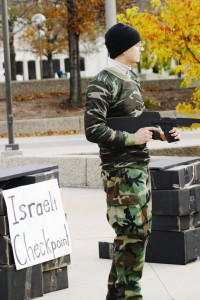
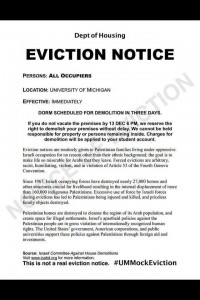
Boycott Divestment Sanction Awareness Gains Traction On University Campuses
Members of the group Students for Justice in Palestine at Northeastern University in Boston were disciplined and banned from serving on the inaugural board of the new organization plus their members must attend a university-sanctioned “training.” This is one of 50 cases of repression the SJP has documented across the country in universities since 2013. As the SJP gains momentum, it faces aggressive campaigns to shield Israel from public scrutiny. The repression campaigns are driven by organizations such as the Anti-Defamation League, the Zionist Organization of America, StandWithUs, the Amcha Initiative, American for Peace and Tolerance and the Bradneis Center. Recently the Northeastern University School of Law chapter of the National Lawyers Guild had publicly declared support for the Northeastern chapter of the SJP and formally opposes the administration’s decision to suspend the group and sanction its members.
Attorney Dima Khalidi:
- We started Palestine Legal Support a little over a year ago.
- The major backlash has been on campuses because that’s where the activism is most vigorous and spirited.
- What we’re seeing is a lot of effort by students, even academics to raise awareness about the Israel – Palestine issue.
- There’s also a lot of movement around Boycott, Divestment Sanction. The BDS movement is really growing and I think that’s been the case since 2008-2009 with Operation Cast Lead.
- We’re seeing students doing a lot of awareness raising, unique and creative things.
- We’re seeing things like mock walls to illustrate what the apartheid wall is doing.
- We’re seeing things like mock eviction notices being distributed in dorms to illustrate the way Israel demolishes Palestinian civilian homes.
- We’ve working with Northeastern students since last year. This year when students, some affiliated with SJP distributed mock eviction notices under dorm room doors, the university, right away, suspended the entire group.
- The reaction is typical but its unique in the type of pressure that’s been put on this university.
- The reaction was disproportionate and inappropriate.
- They sent university police to student’s homes, they interrogated a couple of students. They filed disciplinary charges against 2 students for allegedly allowing students to enter the dorms.
- Title IV of the Civil Rights Act prohibits discrimination on the basis of race, national origin and color by educational institutions.
- This has been used by Jewish groups to allege that universities are discriminating Jewish students by tolerating a hostile anti semitic environment.
- Accusations of anti semitism underlie this backlash. We saw this with mock eviction notices in several places, at Florida Atlantic University last year. The ADL accused the SJP of targeting Jewish students with these notices saying they only put them under Jewish student’s doors.
- The same accusations at Rutgers, that Jewish students were targeted.
- The burden has fallen on those advocating for Palestinian rights.
- What sustains us is really the activists themselves who are really inspirational in their dedication to this issue.
- There are number of student groups that are trying to pass divestment actions at their schools and there’s a sustained attack and we know that Netanyahu himself has said this is a prime threat to the state of Israel.
Guest – Attorney Dima Khalidi, founder and Director of Palestine Solidarity Legal Support (PSLS), and Cooperating Counsel with the Center for Constitutional Rights (CCR). Her work includes providing legal advice to activists, engaging in advocacy to protect their rights to speak out for Palestinian rights, and educating activists and the public about their rights.
———————————————————————-
Civil Liberties, Habeas Corpus, Human Rights, Political Prisoner, Supreme Court, Surveillance, Truth to Power, War Resister
Podcast: Play in new window | Download
Updates:
—–
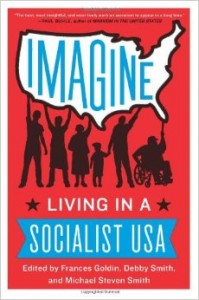
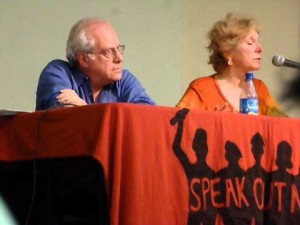
Imagine: Living in a Socialist USA
We continue to discuss the essays within the anthology Imagine: Living In A Socialist U.S.A. assembled and edited by our own co-host Michael Steven Smith, his wife Debby and Frances Goldin. Some of the most prominent activists, artists and experts have given their perspective about how the United States could exist as a socialist society. We’re joined today by Harriet Fraad, a hypnotherapist & psychotherapist in Manhattan. She is a contributor to the book with her essay Emotional and Sexual Life in a Socialist America written with Tess Fraad Wolff. Professor Rick Wolff joins us as well, we talk with him about his essay in the book titled The Shape of A Post-Capitalist Future.
Professor Rick Wolff:
- The willingness to ask the question. Can we do better than capitalism is what was the unifying theme across all these audiences. (regarding recent speaking tour) I think it should give encouragement and heart to everybody listening to this program, to understand how profoundly the wind has changed culturally, and ideologically and philosophically in the United States.
- Capitalism is generating its own critics, its own opponents at a breath taking rate.
- The way to get those people to rethink what socialism means is to revive parts of socialism that have gotten lost over the last century but I think now need to be put in the foreground.
- That’s how its going to change your daily life.
- What I concentrated on in the article is what would it mean if the place where people spend most of their adult life – at work – five out of seven days, best hours of each of those five days, you’re in your work place.
- Let’s talk about what socialism would mean differently from the way capitalism organizes it.
- In a capitalist workplace what most Americans have to face is that its a stunningly undemocratic arrangement.
- How about we democratize the work place? How about we bring democracy to the place it should have been introduced first in our society’s history, if we’re democratic, rather than last.
- That the workers should decide in assemblies, what to produce, how to produce, where to produce and what to do with the profits that after all, all the workers helped to produce.
- The major source of inequality of wealth is how businesses their net income. Their profits. Who gets them?
- They give their top official 200 hundred million dollar bonus packages, 50 million dollar bonus packages and what they don’t give to their top executives they pay out in dividends to their shareholders.
- 5 percent of the shareholders own 80 percent of the shares. If you distribute to shareholders, to distributing to unequal distributions of wealth.
- Socialists want those decisions to made democratically, by all the workers.
- If the workers together made the decision on how to distribute the profits they all helped to produce, you think they would give millions of dollars to a few top executives, while everybody else has to borrow money to send their kid to college.
- I want people to imagine how much better life would be if you handled the organization and the decision making in the enterprises of this society.
- This isolation that Harriet spoke of so movingly is catastrophic politically as long as we all act individually. We have to face and recognize that there are millions of people that want to go beyond capitalism.
- The first order of business is to bring them together in union and solidarity. They can have an impact on this society far beyond what they can achieve individually.
- I also work at being honest in not knowing how best to get people to be together and function together.
- If we could begin to mobilize. . .its important to understand that many of the ideas in this book are already majority points of view.
- When you go to work for another person in a capitalist system, an employer, and you sit down and you work out what you will do and you also work out what that employer will pay you.
- You know that the following is true. The only reason that employer will ever give you 20 dollars an hour is that during that hour, your brains and your muscles produce more than 20 dollars worth of stuff for that employer to sell. The employer will only give you 20 if he gets from you more than 20.
- That is a fundamentally unequal relationship.
Guest – Rick Wolff is Professor of Economics Emeritus, University of Massachusetts, Amherst where he taught economics from 1973 to 2008. He is currently a Visiting Professor in the Graduate Program in International Affairs of the New School University, New York City and directs the website Democracy At Work. Rick hosts the syndicated radio show Economic Update broadcast out of WBAI 99.5 FM.
——
Dr. Harriet Fraad:
- For most people, what they’re aware of is, unemployment is crushing their future or their present but they’re unaware that its crushing their personal lives as well.
- The first thing about capitalism is that what matters is profit.
- In order to profit, companies have outsourced American’s livings. From everything to manufacturing to accounting where you could fax the materials over to India where they speak English or law in terms of writing a brief, can be outsourced.
- People have been utterly looted in their personal lives because of only being a cipher on a profit ledger, not a person.
- 80 percent of the jobs that were lost during the recession were “male” jobs, in manufacturing, or construction which is often prefab or farmed out or jobs that require physical strength, that’s not really required anymore.
- There are two basis for male identity in the United States. One of them is having bread earner role and the other is having a loyal sexual partner and wife, and they’re both out the window.
- 70 percent of divorces are now initiated by women. Women are refusing to get married in the first place.
- Men are being rejected by women and by jobs.
- A lot of manhood has to do with pride, which in the United States has been replaced by shame. Shame is something the Republicans try to cultivate in anyone who doesn’t have money.
- The shame of not being a real person cause you can’t go out and buy stuff.
- The shame in not being able to support a wife and children. Shame easily leads to violence.
- Men have been rejected and are furious and don’t understand that its capitalism that has disempowered them.
- Americans don’t have the benefits of after school care, quality, free health care.
- People are disempowered and confused. Women don’t want to take care of men who won’t be able to support them and still demand full emotional and sexual services as well as child care.
- The biggest increase in married couples are couples that don’t have children. The biggest increase in households are single person households. People are alone.
- If you’re poor and alone, you can hang out at the mall and get arrested.
- People haven’t made the connection. Hey, honey its capitalism, nothing personal.
- They feel its their personal loss, which is why Americans which are 6 percent of the population of the world take 60 percent of the psych drugs.
- Porn which is often impersonal and degrading to women – hetero porn, is the way kids get sex education here. Porn is so profitable.
- The whole idea that the most important thing is connection is a socialist value. It’s all of us together. What we have is our majority and our connection that keeps this world going, rather than capitalists and their money to which we should all pay and obey.
- Americans at the point where they know this is an unjust system but they’re not quite at the point where they can say, and I will do something about it.
- You need to be willing to join with other people. That’s the primary thing.
Guest – Dr. Harriet Fraad, a hypnotherapist & psychotherapist in Manhattan. She is a contributor to the book with her essay Emotional and Sexual Life in a Socialist America written with Tess Fraad Wolff.
——————————————————————————-
Imagine: Living in a Socialist USA
CIA Sponsored Terror, Civil Liberties, Criminalizing Dissent, FBI Intrusion, Guantanamo, Habeas Corpus, Human Rights, Iraq War, Political Prisoner, Prison Industry, RFID, Supreme Court, Surveillance, Targeting Muslims, Torture, War Resister
Podcast: Play in new window | Download
Updates:
——–

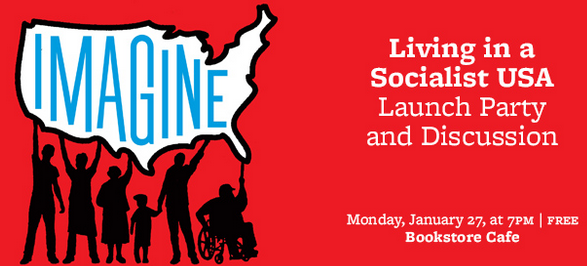
Imagine: Living in a Socialist USA-Frances Goldin, Michael and Debby Smith
Our own co-host Michael Smith, his wife Debby and Frances Goldin have assembled and edited an anthology of powerful essays titled Imagine Living In A Socialist USA. Prominent thinkers, activists and artists have given their perspective of what the United States would look like through the lens of a socialist society. This new work is an important contribution to what we hope will be a broader movement. It includes an indictment of capitalism, an alternative U.S.A. and how to get there.
Frances Goldin:
- It was my brainchild because I wanted to accomplish 3 things before I joined by ancestors. One is everyone who lived in Cooper Square who had been fighting Robert Moses and saving their old tenements since 1959 its been a tremendous long struggle.
- This is the only community land trust in the Northeast. The only one.
- The next one is that I was really distressed at the direction our country was moving. Here I am 89 years old and all of a sudden North Carolina says that we’re going back to the old days where you had to bring in your right arm and read the Constitution without missing a word in order to vote. That plus spying on every American and continuing the wars.
- It was just breaking my heart. I was very distressed that everybody thought that socialism was a dirty word, it was an undemocratic terrible way of life and they just didn’t have a clue as to what it really meant.
- I thought it would be a great idea to pull together some of the greatest minds in the country and let them talk about health, education, welfare, homosexuality, every subject that effects American’s lives and explain how it would be different under socialism if it were democratically done, which is the only way it should be done.
- Within one year, 31 leading brains in the United States for no charge, they did it free, wrote their essays on each one of these subjects. The book is in my hand, its finished and its beautiful and it makes me so happy. That’s my second accomplishment.
- The third one is to see one of the leading intellectuals in the world free, forever free. Mumia Abu-Jamal.
- I couldn’t do it alone, it was a great plan and so I leaned on to dear friends, Debby and Michael Smith.
- I had to force Harper Collins into this, they really didn’t want to do it.
- We were very lucky to hire an incredibly good editor, whose livelihood was editing for magazines and newspapers. If a sentence was too long, he cut it into 2 or 3 sentences.
- Right now, the word socialism, people think of dictatorship, they think terrible things, they think undemocratic.
- This is a simple instruction about how it would effect us with regard to health, education, housing, welfare, all of those subjects which make it so difficult for all of us to live.
- It can’t be a dirty word, it happens to be the most democratic way of governing possible.
- Get the workers to run the company. It’s happening in Spain, with dozens of corporations that have become worker owned.
- It’s going to be the workers dividing the profits among themselves.
- It will only happen when the workers are angry enough and informed enough to know that they can run the show.
- Every penny of the royalties will go to free Mumia Abu-Jamal
- We are not earning one dime from this book. It was a labor of love. It was a labor of activism.
- It was a labor to change the world and make it a better place.
Guest – Frances Goldin is the President & Principal of Frances Goldin Literary Agency. Frances has worked in publishing for 63 years, as an agent and as editor-in-chief of a children’s publishing company; she founded the Frances Goldin Literary Agency and sold her first book in 1977. Authored by Black anthropologist Betty Lou Valentine and titled Hustling and Other Hard Work, the book continued to receive royalties for 32 years. One of the agency’s strengths is that many of its books continue to earn royalties long after publication. Reflecting Goldin’s radical politics, the Agency concentrates on literary fiction and serious, controversial, progressive non-fiction.
—–
Attorney Michael Smith:
- I don’t think its a dirty word, because people see what’s going on under capitalism and they don’t like it. The economic situation in this country ain’t gonna change, its only going to get worse.
- Frances is quite an influential literary agent in this country.
- What’s your definition of socialism? I said a democratic economy and political system, both where people from the bottom up control how we make a living, and how we live.
- We’re having a book launch on January 27. It’s at 126 Crosby Street in SOHO at the book store called Housing Works.
- In order to achieve the kind of socialism we’re talking about and that’s socialism from the bottom up you need a broad democratic movement of people.
- All the left wing parties, all the movement groups, we gotta get together around a common program.
- One of the chapters that I really like, and this isn’t to flatter you Michael Ratner, but you wrote a chapter on what I would do if I was US Attorney General.
- Paul LeBlanc writes his chapter about the 3rd American revolution. Diane Feeley writes about that in her chapter. She’s an auto worker retired from Detroit.
- Michael Zweig, the great sociologist, we reprint his speech from Occupy Wall Street where he talks about the 1 percent, the ruling class.
- He says actually its 1/10 of 1 percent. Those are the people who are the top of the economy and different organizations in this country. He said, you gotta be very careful, because these people will kill ya.
- In the second part of the book, we emphasize use your imagination. How do we organize the economy democratically?
- How do you organize a corporation democratically? Rick Wolff wrote that chapter.
- There are 31 chapters in the book. The last chapter suggests itself. How do we do it?
- We’re not against leadership, we’re against undemocratic leadership but you need people who’ve had some experience and who can draw the lessons of the past.
Guest – Attorney Michael Smith is co-host of Law and Disorder, and a New York City attorney and author. His most recent book, written with Michael Ratner , is Who Killed Che? How The CIA Got Away With Murder. He is on the boards of the Center for Constitutional Rights, and the Brecht Forum. He was educated at the University of Wisconsin in the 1960s, where he learned social history from the great teacher Harvey Goldberg. He has testified on Palestinian rights before committees of the US Congress and the United Nations.
Guest – Debby Smith is a long time socialist since going to college in Boston during the radical sixties. Debby worked full-time for the anti-Vietnam War movement, the Kent State Legal Defense Fund and in the feminist, union and socialist movements. She is also the wife of Michael Smith and participates in the anti-capitalist and pro-democracy movements that are growing rapidly in the United States and worldwide.
————————————————————————————————————
Civil Liberties, Criminalizing Dissent, FBI Intrusion, Habeas Corpus, Human Rights, Political Prisoner, Prison Industry, Supreme Court, Surveillance, Truth to Power
Podcast: Play in new window | Download
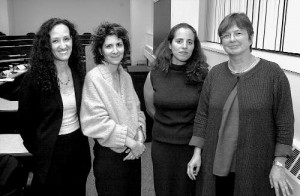
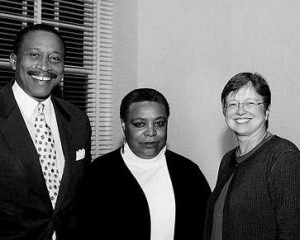
Lawyers You’ll Like: Professor Holly Maguigan
In our Lawyers You’ll Like series we’re joined by Professor Holly Maguigan, Professor of Clinical Law at the New York University School of Law, where she teaches Comparative Criminal Justice Clinic: Focus on Domestic Violence and Evidence. Professor Maguigan is an expert on the criminal trials of battered women. Her research and teaching is interdisciplinary. Professor Maguigan is a member of the Family Violence Prevention Fund’s National Advisory Committee on Cultural Considerations in Domestic Violence cases. She serves on the boards of directors of the National Clearinghouse for the Defense of Battered Women and the William Moses Kunstler Fund for Racial Justice. She is a past co-president of the Society of American Law Teachers, the largest membership organization of law professors in the U.S.
Professor Holly Maguigan:
- I was doing medieval history and I was at Berkeley. It was 1967 and Oakland stopped the draft.
- I got very interested in the anti-war politics.
- I hated lawyers. I really hated lawyers. They were boring. They talked about themselves all the time. They only had stories about their cases and how great they were and they would never post bail when people got arrested.
- The University of Pennsylvania in Philadelphia is where I stayed for 17 years.
- First I started out as a public defender. I loved being a public defender, it was the beginning and end of everything I hoped it would be.
- That’s where I met David Rudovsky and David Kairys. They were then defenders while I was a student.
- After they went out on their own, they kept inviting me to join them. I kept putting it off because I loved being a defender so much.
- In Philadelphia there was much more actual litigation, not just motion litigation there’s a lot of that here in New York City but actual trials.
- You had a sense, there was an analysis that people were doing life on the installment plan and you needed to do what you could to kick them loose any particular time.
- It was a community in its own odd way and I found it difficult to leave it.
- I was doing major felonies within a couple of years.
- David Kairys was very focused on constitutional litigation and government misconduct. He did the Camden 28 which was a big draft resistance case.
- My interest was more into criminal defense.
- Grand juries (all over the country) convened to investigate the alleged transportation of Patty Hearst by the SLA from California where she had been captured.
- He was a killer. (Frank Rizzo) There was no question. More people died in police actions before or since.
- I don’t mean to suggest that all the police started out as homocidal. This was a situation which from the top down came the message if you’re a good cop then you’re going to take people out however you think you need to.
- I knew about race and class bias in the court room as much as a white woman who was middle class could know.
- I was just blown away by what happens when you add hatred of women to hatred of black people and hatred of poor people.
- Judges would go by me in the hall and say Maguigan, ahem, you didn’t give me anything this Christmas, not even one lousy bottle, you’re not getting any assignments.
- Judges would do things, like open the drawer in their chambers, and there would be wads of bills, and they’d let you know.
- I developed a specialty on women who kill men.
- In the early eighties a group in Philadelphia called Women Against Abuse began working and they did advocacy for battered women accused of crime and meant a huge difference.
- The battered women cases I was working on were quite consuming because people then didn’t know very much in how to try these cases.
- The judges expected you to plead insanity or guilty. Reasonable doubt was a consideration at sentencing not at trial.
- There were cases that did require teams. There was no question.
- I wanted to be in court. I wanted to be in the presence of that conflict between the authorities and regular people.
- I went to NYU where I taught in the criminal defense clinic for many years.
- To see students react to the great stories their clients have is just amazing.
- SALT (Society of American Law Teachers) is about who gets into law school, what they learn and who teaches them. It’s about access to justice. It’s about relating to law school as a place where you train people to do social justice. SALT’s focus is on students and teaching.
- Holly Maguigan to be honored by Society of American Law Teachers.
Guest – Professor Holly Maguigan teaches a criminal defense clinic and one in comparative criminal justice as well as a seminar in global public service lawyering and a course in evidence. She is an expert on the criminal trials of battered women. Her research and teaching are interdisciplinary. Of particular importance in her litigation and scholarship are the obstacles to fair trials experienced by people accused of crimes who are not part of the dominant culture. Professor Maguigan is a member of the Family Violence Prevention Fund’s National Advisory Committee on Cultural Considerations in Domestic Violence cases. She serves on the boards of directors of the National Clearinghouse for the Defense of Battered Women and the William Moses Kunstler Fund for Racial Justice. She is a past co-president of the Society of American Law Teachers, the largest membership organization of law professors in the U.S.
——————————————————————————-
Books From Law and Disorder Hosts
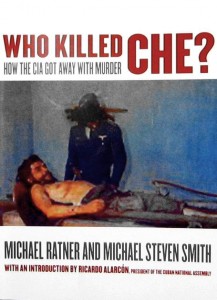
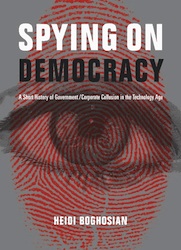
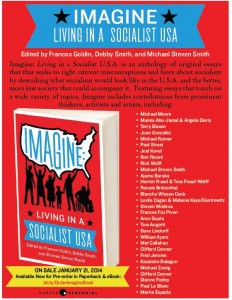
Civil Liberties, Criminalizing Dissent, Extraordinary Rendition, FBI Intrusion, Guantanamo, Habeas Corpus, Human Rights, Political Prisoner, Prison Industry, Supreme Court, Surveillance, Targeting Muslims, Torture, Truth to Power, War Resister
Podcast: Play in new window | Download
Updates:
- Judge Leon Rules That NSA Meta Data Collection Is Likely Unconstitutional.
- Michael Ratner: It Could Be The Deathknell For This Kind Of MetaData Collection
- Ed Snowden’s Response To Judge Leon’s Decision
- Ed Snowden’s Open Letter To The People Of Brasil
- A Christmas Card From Chelsea Manning
- Guantánamo Five: Military Commissions – Their Torture Memories Are . . Classified.
- First Commander Lenhardt: Guantánamo Should Never Have Opened
- American Studies Association Supports Boycott Of Israeli Academic Institutions
——
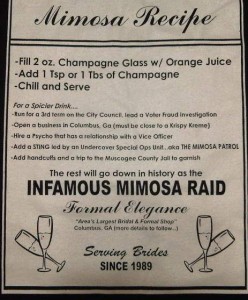

Over Policing of America: The Criminalization of Everyday Life
In his recent article titled Over Policing of America, attorney Chase Madar outlines a familiar narrative such as the militarization of police, stop and frisk, and how students get swept into the school to prison pipeline. The pattern is clear and who benefits is obvious in the list of over policing examples compiled by our returning guest, such as criminalizing immigration and how simple economic transactions are closely scrutinized by under-cover police.
Attorney Chase Madar:
- I’m hoping this new term will enter the national lingo; over-policing.
- What I wrote about is how the police paradigm has entered the DNA of social policy across the board in the United States in matters that a generation ago would not require police or prosecutors or criminal law, now suddenly do.
- That’s in education, in immigration, in family law, even how we regulate the economy.
- All of these spheres, domains of everyday life are increasingly regulated by police and prosecutors.
- A creeping police state. We need to take a very sobering look at how we’re governing ourselves and how criminal law is displacing and devouring all other kinds of social regulation.
- You see this more and more disciplinary matters in schools get outsourced to police departments.
- Police people are trained to respond to crimes, and to respond to everything as a crime. That’s the nature of police.
- When you send police into a school, the crime is going to sky rocket.
- Even the way we regulate our economy is suffering from an overdose of criminal law and police powers.
- What we have frequently is white collar work getting criminalized by a mare’s nest of criminal laws that are very complex, very difficult to understand.
- It’s not like we have a great financial system that was abused by a few bad apples. We have a really crappy system that’s legal because these people write the laws.
- Immigration law was mostly under the domain of administrative law with milder penalties, civil penalties.
- We’re kidding ourselves if we pretend that’s somehow aberrational.
- Although our political class seems incapable of doing anything constructive about it, they are very adept at channeling all fears about security in any sense into criminal law crack downs and ratcheting up the police state.
- Our incarceration rate is three times higher than the old East Germany.
- I think we need to switch very swiftly to alternative ways of social policy in holding our society together other than throwing cops and prosecutors at it.
Guest – Attorney Chase Madar , a TomDispatch regular and author of a new book, The Passion of Bradley Manning (OR Books). Madar tweets @ChMadar. He’s a contributor to the London Review of Books and Le Monde diplomatique and the author of a new book, The Passion of Bradley Manning (OR Books).
——————————————————-
Books From Law and Disorder Hosts




















